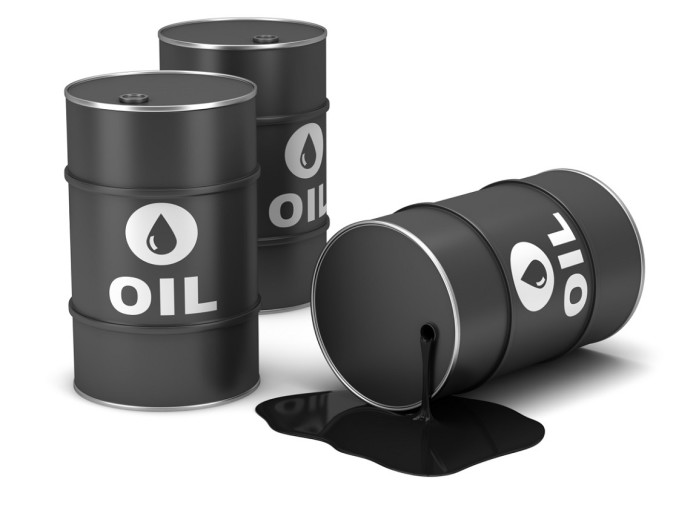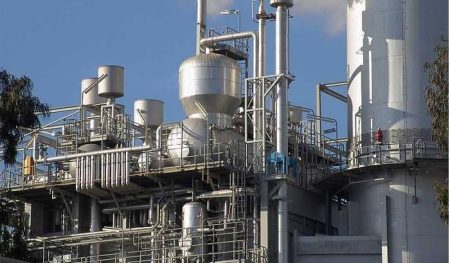
01 January 2017, Lagos — The Organisation of Petroleum Exporting Countries (OPEC) has said the demand for its crude would slightly increase to 32.6 million barrels per day (mb/d) this year from 32.5 mb/d as world oil demand growth is projected to drop to 1.15 mb/d from 1.24 mb/d.
OPEC, which disclosed this in its monthly oil report for December, noted that, “This, combined with the joint cooperation with a number of non-OPEC countries in adjusting production by around 0.6 mb/d, will accelerate the reduction of global inventories and bring forward the rebalancing of the oil market to the second half of 2017.”
Nigerian government has proposed a production of 2.2 million barrels of crude per day for the 2017 budget that is based on oil price benchmark of $42.50 per barrel. The estimated production level ranks Nigeria among the major producing OPEC members. The country is one of the 13 members of OPEC, which is a cartel of oil producing countries founded in 1960.
According to OPEC, the world oil demand estimated at 1.24mb/d, is supported by the transportation sector reflecting low retail prices and better-than-anticipated vehicle sales.
It pointed out: “In the non-OECD, Other Asia and China saw solid-to-steady oil demand growth. In Latin America and the Middle East, oil requirements were lower than initial projections as slower economic developments and a high level of substitution dampened oil consumption. In 2017, world oil demand is projected to grow by 1.15 mb/d. In OECD, oil demand is projected to rise in OECD Americas, flatten in Europe and continue declining in Asia Pacific.
“In non-OECD, improvement in economic activities is assumed to provide support to oil demand growth, particularly in Latin America and the Middle East. Non-OPEC oil supply in 2016 is estimated to contract by 0.78 mb/d.
The main contributors to this decline are the US, China, Mexico, Colombia and other OECD Europe, while growth is anticipated to come from Russia, Brazil, Congo and the UK. Low oil prices led to a decline of 420 tb/d in US oil production.
“Declines are also seen coming from Colombia and China, as well as Canadian conventional crude output. In 2017, non-OPEC oil supply is projected to grow by 0.3 mb/d, despite initial projections in July 2016 for a contraction (Graph 2). This is mainly due to higher price expectations for 2017. The main contributors to non-OPEC supply growth are Brazil with 0.25 mb/d, Kazakhstan with 0.21 mb/d, and Canada with 0.17 mb/d. In contrast, Mexico, US, China, Colombia, and Azerbaijan are expected to show the main declines.”
However, OPEC noted that, “this forecast remains subject to a number of uncertainties, including the pace of economic growth, potential new policies and price developments.”
With regards to crude oil price movements, the OPEC monthly report recalled that, November was a volatile month for crude, with the OPEC Reference Basket (ORB) wiping out gains from the previous month to plunge nearly 10 per cent to $43.22/b.
“Oil prices trended down sharply amid uncertainty surrounding the implementation of OPEC’s Algiers Accord agreed upon in late September. A substantial increase in global oil supplies into a market already awash in crude also contributed to the decline in prices. Year-to-date, the ORB value was lower by 21.9per cent at $39.80/b.
“After rising to 12-month-highs in October in reaction to the OPEC decision in Algiers, crude oil futures plunged in November. A sharp increase in global oil supplies was also a contributing factor. An all-time high build of 14.4mb in US crude stocks, as well as the unexpected result of the US presidential election and the strength of the US dollar, all weighed heavily on oil prices during the month,” it stated.
Nevertheless, OPEC added in the report, the oil complex still managed to soar more than 10 per cent, with futures for both benchmark crudes well above $50/b late in the month following OPEC’s announcement on 30 November of a supply adjustment agreement.
According to the cartel, “ICE Brent ended $4.31 lower at $47.08/b for the month and 19.5per cent lower at $44.26/b for the year. Similarly, NYMEX WTI dropped $4.18 to $45.76/b in November and 14.3per cent to $42.68/b year-to-date.
The ICE Brent/NYMEX WTI (or transatlantic) spread narrowed further to $1.30/b, encouraging the US to import Brent-related grades such as West African crudes. Pressure on Brent relative to WTI has come from increasing production and exports of regional light sweet crudes as well as North Sea grades. Speculators bet strongly on price declines in November. Futures and options trading data indicated that money managers had boosted short positions by record amounts throughout the month.
Besides, the report stated that, in a very volatile month for crude oil, the ORB wiped out almost all its previous month’s gains to end November close to 10per cent lower. “Oil prices trended down sharply a few days after having reached a 15-month high in response to the OPEC decision in Algiers (the Algiers Accord) at the end of September, which was designed to bring forward market rebalancing. “During the two weeks following the agreement, uncertainty regarding its implementation set off a sharp decline in oil prices.
A substantial increase in global oil supplies, in a market already awash in oil, also contributed to this price drop. Oversupply in oil came from an all-time high level of output by most major crude oil producers, as well as the return of lost production from turbulent areas and from planned oil field maintenance. The surprise result of the US presidential election, and the increase in the US dollar that accompanied it, also contributed to the deterioration in oil prices seen in November.
“Nevertheless, by the end of the month, the highly-anticipated announcement of a supply adjustment by OPEC of around 1.2 mb/d for the first time since 2008 – with scope for cooperation from non-OPEC – sent the oil market soaring by more than 18per cent, lifting the ORB value to its highest this year. On 2 December, the ORB value reached nearly $50/b for the first time since October last year,” it explained.
*Kunle Aderinokun – Thisday



